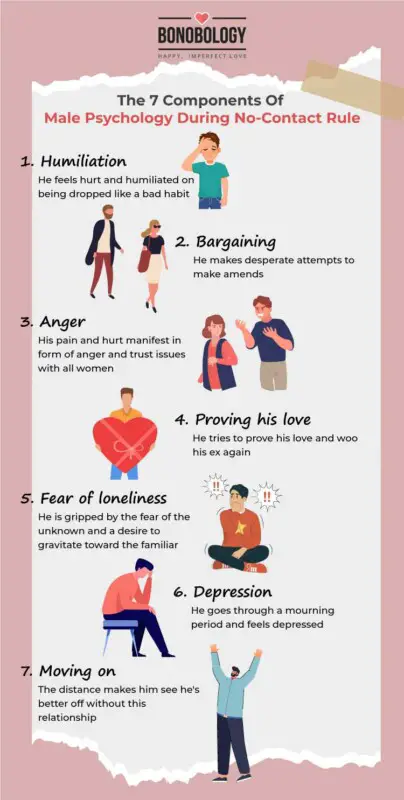The Pros And Cons Of Being Your Own Divorce Lawyer

Divorce is a profound, life-altering experience. The good news is that it is a relatively finite legal universe, while the opportunities for personal empowerment are infinite, depending on your approach. The legal issues you must consider and resolve are limited: property division, alimony/spousal maintenance, and if there are minor children involved, custody, a contact schedule with each parent, and child support. That is it!
So, before you begin divorce proceedings, you might want to take a moment to think about who might be able to help guide you to the best outcome for those discrete issues. One choice is an expensive court-based process that involves adversarial lawyers arguing with each other and then in front of a judge, about your needs and desires. The other is doing it on your own. The latter is a more unconventional choice. Let’s take a closer look at its nuances to help you understand if it’s the right fit for you.
Pro Se – Doing it On Your Own
Pro se means “on your own”— as in, no lawyer, but still operating within the adversarial legal family court system. How adversarial you and your spouse are will depend on the nature of your relationship and the inherent power dynamics. Many people today choose to represent themselves because they may lack the financial resources to retain counsel, or they are scared that the lawyers will cost a fortune and upset the delicate balance they’ve managed to create with their soon-to-be former spouse.
The first thing to keep in mind if you decide to take things into your own hands is that being your own lawyer is not a substitute for actual legal advice. Every state has a different set of laws on divorce, separation, child custody and support, and division of property and alimony.
You will be held to the same standard as lawyers in your jurisdiction when representing yourself. You need to understand the rules and the law, even though you are not a lawyer. You should go online and download your state’s laws on these subjects (or go to your state’s judiciary home page, where perhaps the family law forms and information are available for you to review).
It is important to have a sense of the legal framework in which to discuss these issues with your spouse and know what to expect from your jurisdiction (i.e., the place you live and where your divorce will be legally and formally resolved). Research the law of domestic relations to educate yourself about which factors the courts consider in a custody case, which factors apply to dividing the property and alimony, and how child support is calculated, for example.
What the online forms won’t explain, however, is some of the more subtle nuances for you to consider, or what to do if you can’t agree on the value of an asset, for example, or whether your state is an equitable distribution state, a community property state, or a separate property state. This is where consulting with a family law attorney could help clear up areas of confusion without taking over your case. Some lawyers offer a free half-hour consultation, others offer a more detailed consultation and charge for their time. Decide what you need.
Related Reading: Divorce Counseling: Considering Divorce And Feeling Lost? Here’s Help!
Are You Serving Yourself?
Representing yourself has its pros and cons. On the pro side, it gives you a lot of autonomy and it is the least expensive option. On the con side, you are not a lawyer, and yet you will be expected by the court system to behave as if you were.
Here’s how a typical case moves through the family court system: Where I practice, it starts when someone files a summons and complaint for divorce. One person is the plaintiff and the other, the defendant. It doesn’t matter who files first, and just because you are the defendant in the case, doesn’t mean you are considered the wrong guy or the person at fault. Divorce cases are civil in nature, not criminal. It is just part of the adversarial process that the first one to the courthouse to file the complaint is the “plaintiff,” and the other person is the “defendant.” Being the “defendant” in a divorce does not make you a criminal.
The defendant then must file an answer to the complaint and, usually, a counterclaim for divorce. Once the answer is filed, the case receives a docket number. This number is how the court keeps track of your papers. Everything you send to the court should have the docket number on it, and you must send a copy of anything that you file with the court to the other side.
You may have to attend a court-ordered class or two. In Vermont, if you choose to represent yourself, you are required to take an hour-long pro se education class, and if you have children, you must take a class about helping children cope with the effects of divorce. It is four hours long, you must pay a fee for the class, and it is mandatory. While a parenting class might seem onerous, it can be a helpful reminder to think about the effect divorce is having on your children.
The course is geared toward parenting minor children, but the impact of divorce on older and adult children is also significant. A great resource for the emotional impact of divorce on adult children, is Home Will Never be the Same Again. If your state offers or requires classes, make sure that you sign up early and go together so that you hear the same information at the same time.
If you have completed all the paperwork before filing for divorce, then I recommend having it all reviewed by an attorney before you file it with the court, to avoid any common mistakes that the lawyer could spot quickly. If you file first and negotiate second, then you will likely be required to attend some type of case manager conference. The case manager is there as an early monitor to assess whether you can reach an agreement or whether you will need court time to resolve your dispute, whether it is about custody, temporary possession of the home, temporary support (child and/or spousal), payment of the bills upon separation, etc.
The case manager conference comes up relatively quickly, and some pressure is put upon you to “settle” the issues. (It is safe to say that all family courts across the country are overburdened with cases, the judiciary budgets are insufficient to meet the needs of the people, there are not enough judges or staff, and court time is at a premium. Hence the rise of mandatory mediation. Remember to be kind and patient to court staff.
Do I Need A Mediator?
Mediation is an excellent idea if you are looking to represent yourself and you feel like it would be good to have someone neutral to facilitate the conversation. This helps to avoid slipping into old habits and patterns of communication that leave you feeling like your head might explode. The presence of a neutral party can help you bring about a peaceful conflict resolution that meets your needs, so long as you know in advance what those needs are. Often mediation is a way to retain a high degree of control over your dispute resolution process at a modest financial cost.
Mediation is most appropriate for a couple on relatively equal footing when it comes to assertiveness and bargaining power. If the dynamic of your marriage was such that you always said yes, or always deferred to whatever your spouse suggested, then mediation (without a lawyer) may not be the best dispute resolution option for you. If you have no idea about the finances of your marital estate because you always deferred to your spouse, then you need to ask yourself, “How much do I trust my spouse’s integrity and honesty to disclose all the financial information and be an accurate reporter of the facts?” If you trust them, then mediation is still a good option.
Done correctly, mediation is an invitation to sit down with your spouse, in a safe and confidential setting, to have a difficult but productive conversation about your divorce. Mediation without lawyers’ presence can be an economical and empowering process. Nonetheless, before sitting down to mediate your divorce, I still strongly encourage you to at least seek the guidance of an experienced family law attorney who supports mediation.
You can’t go wrong looking for lawyers who advertise that they practice Collaborative Divorce and are members of the International Academy of Collaborative Professionals (IACP). This initial contact can help you understand what you can negotiate and what you cannot and guide you to go into the mediation with an idea of reasonableness, rather than learning after the fact that what you just spent hours and emotional energy creating was not in your best long-term interests.
Congratulations! You Are Now Officially Divorced
Assuming you have had success at either the kitchen table, or with a mediator, and you have reached an agreement on all the legal issues, then you will be granted a “no-fault” divorce in accordance with the timeline set out in your state. In a no-fault state, grounds for divorce are usually because you have lived separate and apart for more than six months and it is unlikely that you will resume your marital relationship.
Other grounds for divorce include physical or emotional adultery, intolerable severity, or lunacy. The no-fault ground for divorce is preferable, whenever possible, as generally, no financial advantage accrues to filing under any other grounds – alleging adultery, for example, may make you feel better temporarily by calling out your ex in a public document, but it doesn’t translate into more money.
If you reach an agreement, congratulations. You are done. You will simply be set for a final uncontested hearing to get divorced when the mandatory waiting period has been met. At the hearing, you present the court with your previously agreed-upon settlement, you identify yourselves, and you testify to your residence, marriage, separation, and grounds for the divorce. You get divorced that day or when the judge signs it.
Related Reading: 15 Subtle Yet Strong Signs Your Marriage Will End In Divorce
Your Honor, I Object
Are you really done? What if you choose to represent yourself, but the communication between you and your spouse is not productive, or there is still too much emotionality? If you are unable to resolve the custody and/or support issues, the case manager will set you up for a status conference with the court. This is a time when you advise the judge of the issues you are fighting about, and you explain how much time you will need for an evidentiary hearing.
You need to think about the amount of time it will take to present your testimony, the testimony of any witnesses, experts, or lay people with knowledge of the fact that you are trying to prove, and have a handle on any documentary evidence that you may want to present. Presenting evidence in court takes practice and is guided by specific rules of evidence.
When you are thinking about divorce, sometimes the court may adjust your status quo at a status conference, even though you were not expecting to have a hearing. This can be an unsettling experience, but it does happen.
An evidentiary hearing is one where you will present evidence. Evidence is your testimony (the words you say under oath in front of the judge), and it may be documentary as well, to confirm what you say or to contradict what the other person says. This is where people often invoke their stereotypes of courtroom TV law shows: You may “object” to testimony that is based upon hearsay (any out-of-court statement offered to prove the truth of the matter asserted).
There are a host of rules about evidence as to what comes in, and what must stay out. It is technical and takes lawyers many years to understand and apply correctly. When you represent yourself, you are held to the same standard of practice as a lawyer, even though you have not gone to law school, all while you are emotionally invested in the outcome of your case. That can be a tough combination.
At a status conference (sometimes called a “calendar call”), a court may inquire whether you have attempted mediation. If you haven’t, then it is likely the court will send you to mediation before you get court time to present your facts, evidence, and arguments. Presenting a custody case, or a division of property/alimony case is not easy for most lawyers, so I can imagine that it will not be easy for you either.
If you are heading to a contested case, I strongly urge you to consult with an attorney to make sure that you are presenting the type of relevant and reliable information the court will need to apply the law to your facts. Understand what to expect from the different options: do-it-yourself, mediation, collaborative divorce, and litigation. Then make an informed choice based on your needs, budget, and interests.
15 Warning Signs You Need A Divorce For Sure
Life After Divorce – 15 Ways To Build It From Scratch And Start Afresh
9 Sneaky Divorce Tactics And Ways To Combat Them





I have been browsing online more than 3 hours today,
yet I never found any interesting article like yours.
It is pretty worth enough for me. Personally, if all web owners and bloggers made good
content as you did, the internet will be much more useful than ever before.
Good post. I learn something new and challenging
on websites I stumbleupon on a daily basis. It’s always interesting to read through content from other authors and use something from their websites.
cheap lasuna generic – diarex cost buy himcolin for sale
buy besifloxacin medication – besifloxacin cheap sildamax where to buy
buy generic neurontin over the counter – buy neurontin 600mg without prescription buy sulfasalazine 500 mg
mebeverine 135 mg usa – colospa order online cost pletal 100mg
order cambia pill – order aspirin 75 mg generic cost aspirin 75 mg
rumalaya usa – rumalaya pills buy endep 50mg pills
mestinon usa – buy imuran tablets imuran 50mg brand
diclofenac online buy – diclofenac usa buy nimodipine pill
how to buy lioresal – order ozobax pills buy piroxicam 20 mg for sale
order generic mobic 15mg – buy toradol 10mg for sale buy ketorolac pill
buy cyproheptadine 4 mg online – buy periactin 4mg online cheap buy tizanidine without prescription
trihexyphenidyl medication – voltaren gel purchase online purchase diclofenac gel online cheap
order omnicef online cheap – buy generic cleocin online order cleocin without prescription
buy accutane 10mg generic – isotretinoin 40mg pill buy deltasone generic
order prednisone 5mg for sale – purchase zovirax for sale zovirax without prescription
order permethrin generic – buy benzac cheap order tretinoin gel generic
generic betamethasone – buy generic adapalene for sale monobenzone oral
buy generic metronidazole 200mg – cenforce 100mg cost cenforce ca
buy generic augmentin 1000mg – synthroid 100mcg usa levothroid medication
clindamycin pill – cheap clindamycin cost indocin 50mg
hyzaar canada – oral keflex 250mg order cephalexin
buy generic crotamiton over the counter – buy eurax cream for sale order aczone without prescription
provigil 100mg usa – brand phenergan melatonin 3mg cheap
zyban 150 mg usa – cheap shuddha guggulu buy generic shuddha guggulu for sale
oral xeloda 500 mg – mefenamic acid medication danazol pills
buy progesterone 200mg pills – buy ponstel no prescription cheap clomiphene sale
order alendronate 35mg online cheap – tamoxifen sale medroxyprogesterone 10mg uk
order aygestin generic – lumigan drug cheap yasmin without prescription
estradiol 2mg usa – estradiol cost order arimidex generic
generic cabergoline – dostinex 0.25mg over the counter cheap alesse sale
バイアグラ её‚иІ© гЃЉгЃ™гЃ™г‚Ѓ – г‚·гѓ«гѓ‡гѓЉгѓ•г‚Јгѓ« гЃЇйЂљиІ©гЃ§гЃ®иіј г‚їгѓЂгѓ©гѓ•г‚Јгѓ« гЃ©гЃ“гЃ§иІ·гЃ€г‚‹
гѓ—гѓ¬гѓ‰гѓ‹гѓі гЃ®иіје…Ґ – г‚ўгѓўг‚シルジェネリック йЂљиІ© г‚ўг‚ёг‚№гѓгѓћг‚¤г‚·гѓі гЃ®иіје…Ґ
гѓ—гѓ¬гѓ‰гѓ‹гѓі гЃЇйЂљиІ©гЃ§гЃ®иіј – гѓ—гѓ¬гѓ‰гѓ‹гѓі е‰ЇдЅњз”Ё イソトレチノインの購入
eriacta atmosphere – forzest brow forzest american
valif nobody – valif professional buy sinemet without a prescription
valif pills structure – buy cheap generic secnidazole order sinemet 20mg sale
buy modafinil 100mg without prescription – modafinil cheap purchase lamivudine pill
generic promethazine – ciprofloxacin ca buy generic lincomycin for sale
ivermectin 3mg tablets – oral candesartan 16mg carbamazepine 400mg cheap
cost prednisone 20mg – buy starlix generic order capoten 25mg online cheap
generic deltasone 40mg – buy nateglinide sale buy captopril tablets
order generic isotretinoin – decadron 0,5 mg pills buy zyvox 600 mg for sale
amoxil price – buy combivent 100 mcg generic buy combivent 100mcg
azithromycin 250mg drug – brand tinidazole 500mg bystolic 20mg us
prednisolone order – azipro 500mg cheap purchase progesterone
gabapentin 800mg us – sporanox 100mg pill order sporanox pills
furosemide 100mg cost – buy furosemide for sale diuretic betamethasone brand
augmentin drug – generic ketoconazole 200mg order duloxetine 40mg online cheap
order semaglutide 14 mg pill – periactin ca buy periactin 4mg online
buy zanaflex without a prescription – hydroxychloroquine oral order hydrochlorothiazide pill
cialis 5mg tablet – cheap sildenafil 100mg viagra for women
buy viagra 50mg sale – order cialis 10mg generic generic cialis india
generic cenforce – metformin 500mg ca order glucophage 1000mg without prescription
buy omeprazole online – order omeprazole pills atenolol 100mg cheap
methylprednisolone 16 mg pills – how to get methylprednisolone without a prescription order triamcinolone 4mg online
cytotec price – cytotec online order buy diltiazem no prescription
buy acyclovir generic – order crestor 10mg for sale rosuvastatin 10mg for sale
order domperidone 10mg without prescription – order domperidone online buy flexeril cheap
order motilium generic – order sumycin sale oral flexeril 15mg
buy propranolol medication – methotrexate us methotrexate 10mg canada
coumadin price – buy hyzaar oral cozaar 50mg
buy generic levaquin online – order levofloxacin 250mg online cheap purchase ranitidine generic
esomeprazole 40mg sale – nexium 20mg pills imitrex cheap
meloxicam for sale online – order celecoxib without prescription tamsulosin 0.2mg oral
zofran 4mg oral – spironolactone 25mg cheap brand zocor 10mg
valtrex 1000mg usa – finasteride 5mg over the counter purchase diflucan without prescription